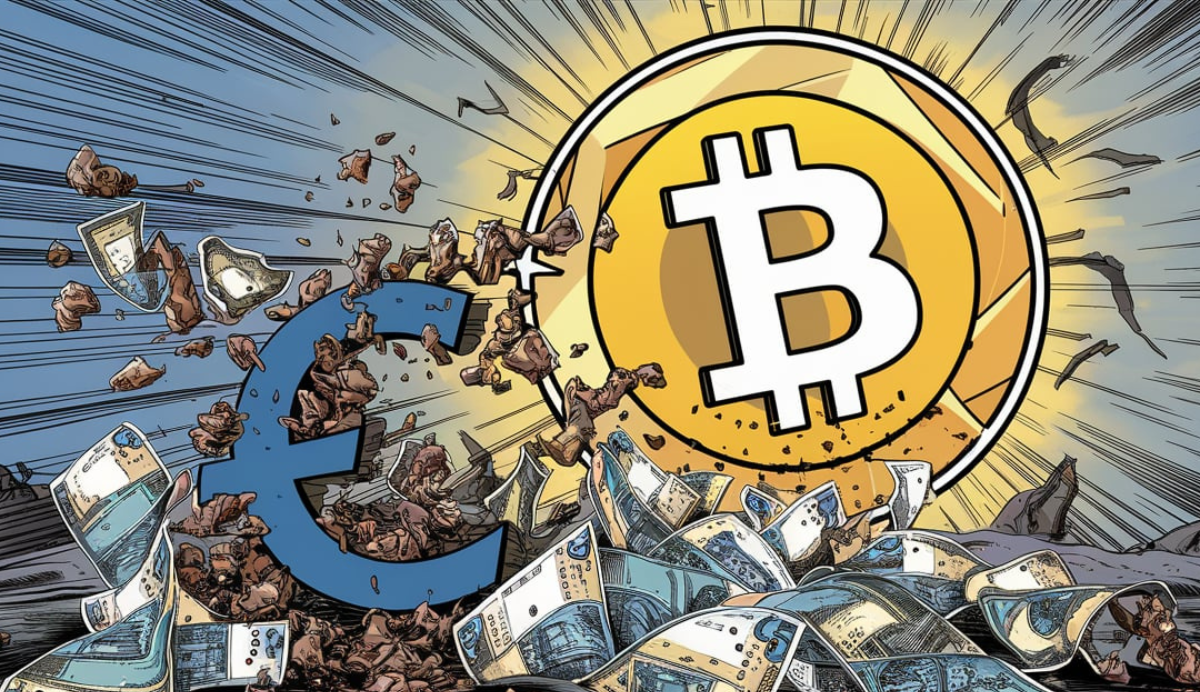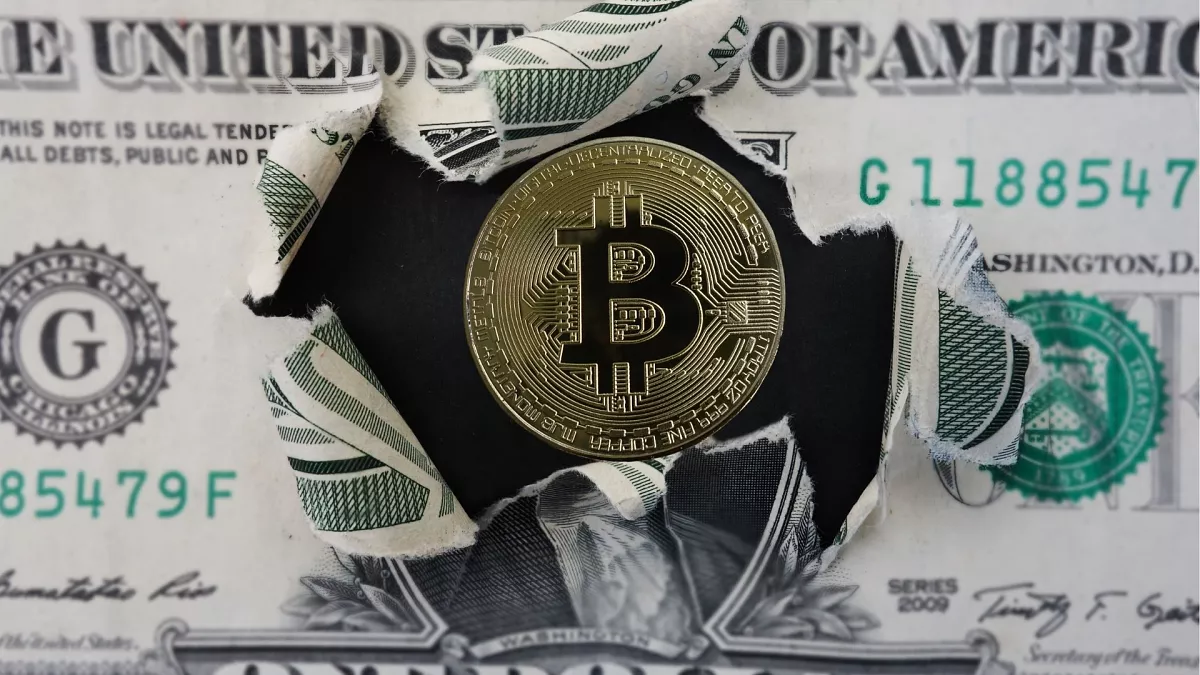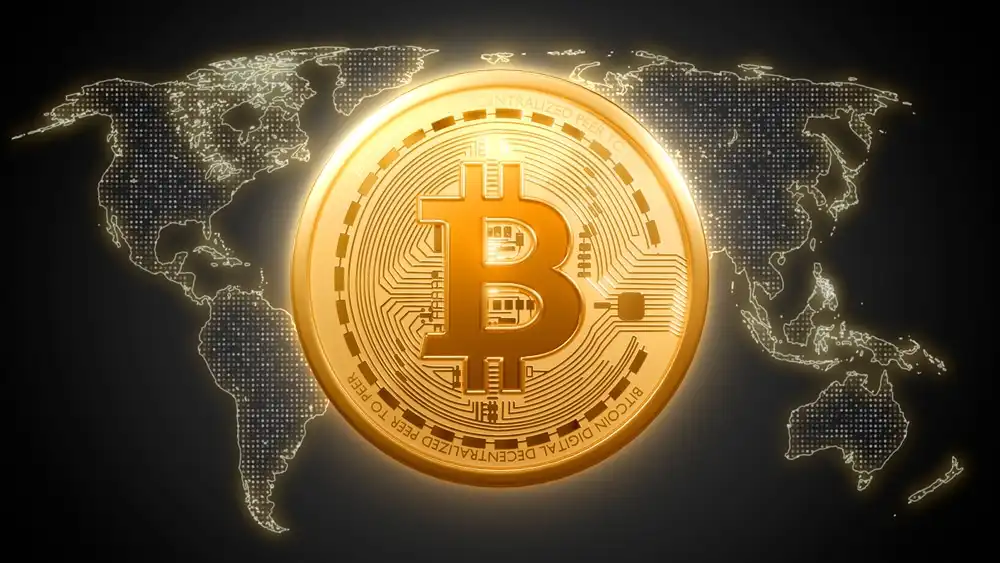
As Bitcoin continues to gain mainstream attention, a question on the minds of many economists, investors, and policymakers is whether it has the potential to become the world’s reserve currency. A world reserve currency is a currency that central banks hold in large quantities and use to conduct international trade and investments. Currently, the US dollar holds this position, but with Bitcoin’s decentralized nature and increasing popularity, some speculate it could one day replace traditional fiat currencies as the global standard.
In this article, we explore the concept of Bitcoin becoming a world reserve currency, the factors driving this speculation, the challenges it faces, and what such a shift would mean for the global economy.
What is a World Reserve Currency?
A world reserve currency is a currency that is widely accepted around the globe for trade, payments, and investment purposes. Central banks and governments hold large reserves of this currency to stabilize their economies and facilitate international transactions. The US dollar has been the dominant world reserve currency since the mid-20th century, accounting for about 60% of global reserves.
The key characteristics of a world reserve currency include:
- Widespread acceptance: It must be trusted and accepted by nations worldwide for trade and financial transactions.
- Stability: It must maintain relatively stable value over time.
- Liquidity: It should be easy to convert and trade in global financial markets.
Bitcoin, with its decentralized nature, scarcity, and increasing adoption, is often discussed as a potential candidate to challenge the US dollar’s dominance.
Why Bitcoin Could Become a World Reserve Currency

Several factors support the idea of Bitcoin one day becoming a world reserve currency. Here are some key reasons why experts and crypto enthusiasts believe Bitcoin has the potential to play this role:
Decentralization and Independence from Governments
Bitcoin’s decentralized nature is one of its most compelling attributes when considering it as a reserve currency. Unlike traditional fiat currencies that are controlled by central banks, Bitcoin operates independently of any government or financial institution. This means it is less susceptible to inflation, political interference, or manipulation by any single nation.
In a global financial system that increasingly questions the dominance of any one country’s currency, a decentralized option like Bitcoin could provide stability and neutrality, making it a viable alternative for countries that seek to diversify their reserves.
Limited Supply and Inflation Resistance
Bitcoin has a fixed supply of 21 million coins, making it inherently scarce. This contrasts sharply with fiat currencies, where central banks can print more money at will, often leading to inflation. Because Bitcoin cannot be inflated in this way, it is viewed by many as a hedge against currency devaluation, particularly in times of economic uncertainty.
As global inflation rates rise and countries grapple with debt and monetary expansion, Bitcoin’s deflationary characteristics make it an appealing option for countries and investors looking to protect their wealth.
Growing Adoption and Institutional Investment
Bitcoin has experienced rapid growth in adoption over the past decade. What began as a niche digital currency is now used by millions of people and businesses worldwide. Major financial institutions, including hedge funds, publicly traded companies, and even central banks, are starting to invest in Bitcoin, recognizing its potential as a store of value and a hedge against economic instability.
The increasing institutional acceptance of Bitcoin lends credibility to the argument that it could one day become a globally accepted reserve currency. As more businesses, governments, and financial entities adopt Bitcoin, its liquidity, market depth, and legitimacy grow, positioning it as a serious contender in the global financial system.
Technological Advancements and Global Payment Systems
Bitcoin operates on blockchain technology, which offers a highly secure, transparent, and decentralized way to conduct transactions. Unlike traditional financial systems that rely on intermediaries, Bitcoin’s peer-to-peer network allows for direct and instant transfers of value across borders. This efficiency and cost-effectiveness make Bitcoin a promising alternative for international trade and payments, potentially reducing reliance on centralized financial institutions and their currencies.
As technological advancements improve Bitcoin’s scalability and transaction speed (e.g., through the Lightning Network), it becomes more feasible as a currency for global trade and commerce.
Challenges Bitcoin Faces in Becoming a World Reserve Currency

While there are many reasons to believe in Bitcoin’s potential as a world reserve currency, significant challenges remain that could hinder its widespread adoption in this role.
Volatility
One of the most significant obstacles to Bitcoin becoming a world reserve currency is its price volatility. Unlike traditional fiat currencies that experience relatively stable fluctuations, Bitcoin’s value can swing dramatically within short periods. This volatility makes it difficult for governments and central banks to rely on it as a stable store of value or medium of exchange.
For Bitcoin to be seriously considered as a reserve currency, its volatility would need to decrease significantly. This could potentially happen as the market matures, more liquidity is added, and adoption rates increase, but this remains a long-term challenge.
Regulatory Uncertainty
Bitcoin operates outside the traditional financial system, which means it exists in a gray area regarding regulations. Governments around the world have taken different approaches to regulating Bitcoin, with some embracing it and others attempting to limit its use.
For Bitcoin to become a world reserve currency, it would need to gain widespread acceptance and regulatory clarity from major economies. Central banks and governments may be hesitant to adopt a currency that they cannot control, making regulatory hurdles a significant challenge for Bitcoin’s global ambitions.
Energy Consumption and Environmental Concerns
Bitcoin mining, the process by which new bitcoins are created and transactions are verified, consumes a vast amount of energy. Critics argue that Bitcoin’s environmental impact could be a major barrier to its adoption as a global currency. The energy-intensive proof-of-work consensus mechanism that underpins Bitcoin’s security is one of the primary reasons for its large carbon footprint.
As environmental concerns become more prominent on the global stage, Bitcoin would need to address its energy consumption issues to be considered a viable long-term solution for international trade and as a reserve asset. This might involve transitioning to more sustainable energy sources or the adoption of alternative consensus mechanisms.
Lack of Widespread Usage in Trade
Although Bitcoin is increasingly used for investment purposes and as a store of value, its use in everyday transactions and global trade remains limited. For Bitcoin to function as a world reserve currency, it would need to be widely accepted in commerce and trade across countries.
Currently, the majority of global transactions are conducted using traditional fiat currencies like the US dollar, Euro, and Chinese yuan. Bitcoin’s usage in international trade is still in its infancy, and overcoming the inertia of existing currency systems will be a significant hurdle.
The Implications of Bitcoin Becoming a World Reserve Currency

If Bitcoin were to become the world’s reserve currency, it would have profound implications for the global financial system and the way countries interact economically. Here are some potential outcomes:
Shift in Global Power Dynamics
The US dollar’s status as the world reserve currency gives the United States considerable economic and geopolitical power. If Bitcoin were to replace the dollar, it could lead to a redistribution of global power, particularly in international trade and finance. Countries that adopt Bitcoin early could gain an economic advantage, while those that resist could be left behind.
Decentralization of Financial Systems
With Bitcoin as the world reserve currency, financial systems would become more decentralized, reducing the influence of any one nation or central bank. This could lead to a more level playing field in international relations, as no single country would have control over the global reserve currency.
Increased Financial Inclusion
Bitcoin’s decentralized and borderless nature could also lead to greater financial inclusion. Individuals and businesses in countries with unstable or devalued fiat currencies could turn to Bitcoin as a stable and reliable store of value. This could help reduce poverty and economic inequality, particularly in developing nations.
Impact on Traditional Banks
If Bitcoin were to become the world’s reserve currency, traditional banks and financial institutions would need to adapt to a new global monetary system. This could lead to major shifts in the way banking services are offered, as Bitcoin’s peer-to-peer network reduces the need for intermediaries in financial transactions.
The idea of Bitcoin becoming a world reserve currency is not far-fetched, but it remains a long-term and complex challenge. While Bitcoin’s decentralized nature, limited supply, and growing adoption make it a strong candidate for global financial integration, significant obstacles like volatility, regulatory uncertainty, and environmental concerns must be addressed.
If these challenges can be overcome, Bitcoin could potentially reshape the global economic order, offering a decentralized alternative to fiat currencies and reducing the dominance of any single country’s currency. However, whether Bitcoin will ever achieve this status remains to be seen, and the path to becoming the world reserve currency is likely to be long and fraught with challenges.